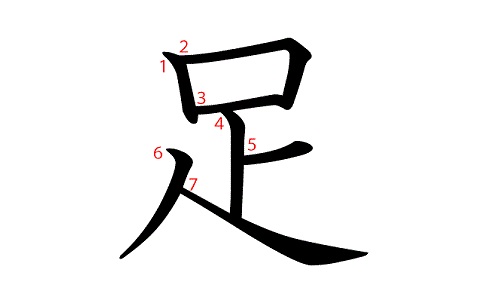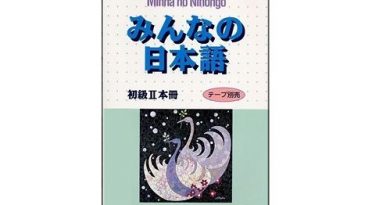Common phrases using the word 足
Common phrases using the word 足 (ashi). In Japanese, there are many phrases go with certain words like 足、手、頭、気、身… These words are used very commonly in everyday conversations.
In this article, LearnJapanesedaily would like to introduce to use common phrases using the word 足.
The ones in orange are used very commonly.
Contents
- 1 Common phrases using 足
- 1.1 1.足が地につかない:ashiga chini tsukanai : Not confident when talking about something you don’t know really well.
- 1.2 2.足が出る:ashiga deru : Short of money.
- 1.3 3. 足がぼうになる:Numb
- 1.4 4. 足元(あしもと)に火(ひ)がつく:To race against time.
- 1.5 5. 足元(あしもと)にもおよばない:Inferior to, not as good as.
- 1.6 6. 足元を見る – ashimotowo miru :Take advantage of others’ weaknesses.
- 1.7 7. 足を洗う (ashiwo arau) :To break a bad habit.
- 1.8 8.足を止める (ashiwo tomeru) :To stop, freeze (while walking).
- 1.9 9.手も足も出ない:(temo ashimo denai) : Invincible.
Common phrases using 足
1.足が地につかない:ashiga chini tsukanai : Not confident when talking about something you don’t know really well.
For example:
この問題の物理学的についての説明、足が地に着かない。
このもんだいのぶつりがくてきについてのせつめい、あしがちにつかない
konomondai no butsuri gakuteki ni tsuite no setsumei, ashi ga tsukanai.
→ I’m not confident at the explanation about physical aspect of this matter.
2.足が出る:ashiga deru : Short of money.
For example:
この靴とても高いので5千足が出た。
このくつとてもたかいので5せんえんあしがでた。
kono kutsu totemo takai node gosenen ashi ga deta.
→ This pair of shoes is too expensive, I still need 5000 yen.
3. 足がぼうになる:Numb
For example:
3 時間走っていて足がぼうになった。
さんじかんはしっていてあしがぼうになった。
sanjikan hashitte ite, ashi ga bou ni natta.
→ Running for 3 hours straight makes my legs numbed.
4. 足元(あしもと)に火(ひ)がつく:To race against time.
For example:
明日は上司にレポートをだしなければならないよ。足元あしもとに火ひがついた。
あしたはじょうしにレポートをだしなければならないよ。あしもとにひがついた。
ashi ha joushi ni repoto wo dashinakereba naranai. ashimoto ni hi ga tsuita.
→ I have to hand in a report to my manager tomorrow. I need to race against time.
5. 足元(あしもと)にもおよばない:Inferior to, not as good as.
For example:
他人の気持ちを理解することではあきこさんのあしもとにもおよばない。
たにんのきもちをりかいすることではあきこさんのあしもとにもおよばない。
tanin no kimochi wo rikai suru koto deha akikosan no ashimoto ni mooyobanai.
→ I’m so much worse than Akiko at being sensitive to other people’s feelings.
6. 足元を見る – ashimotowo miru :Take advantage of others’ weaknesses.
For example:
あの店で買わないほうがいい。客の足元を見て価格を決めるから。
あのみせでかわないほうがいい。きゃくのあしもとをみてかかくをきめるから。
ano mise de dawanai hou ga ii. kyaku no ashimoto wo mite kakaku wo kimeru kara.
→ Don’t shop at that store, they treat customers differently (tell price based on customers’ look).
7. 足を洗う (ashiwo arau) :To break a bad habit.
For example:
タバコを吸うことは体に悪い影響を与えるという事実があるし、あなたは足を洗ったほうがいい。
タバコをすうことはからだにわるいえいきょうをあたえるというじじつがあるし、あなたはあしをあらったほうがいい。
tabako wo suu koto ha karada ni warui eikyou wo ataeru jijitsu ga arushi, anata ha ashi wo aratta hou ga ii.
→ Smoking is bad for your health, you should give up smoking.
8.足を止める (ashiwo tomeru) :To stop, freeze (while walking).
For example:
ついにもとの彼氏が見えて、足を止めた。
ついにもとのかれしがみえて、あしをとめた。
tsuini moto no kareshi ga miete, ashi wo tometa.
→ I stopped walking because I saw my ex.
9.手も足も出ない:(temo ashimo denai) : Invincible.
For example:
さとうさんの歴史の知識については、クラスで誰でも手も足も出ない。
さとうさんのれきしのちしきについては、クラスでだれでもてもあしも出ない。
satousan no rekishi no chishiki nitsuite ha, kurasu de dare demo te mo ashi mo denai.
→ His knowledge of history is invincible, no one in class can go up against him.
Above are common phrases using 足. Check out other Japanese vocabulary in section: Japanese vocabulary by theme
Good luck on your journey of learning Japanese!
Check out more similar articles on section : Learn Japanese for beginers

